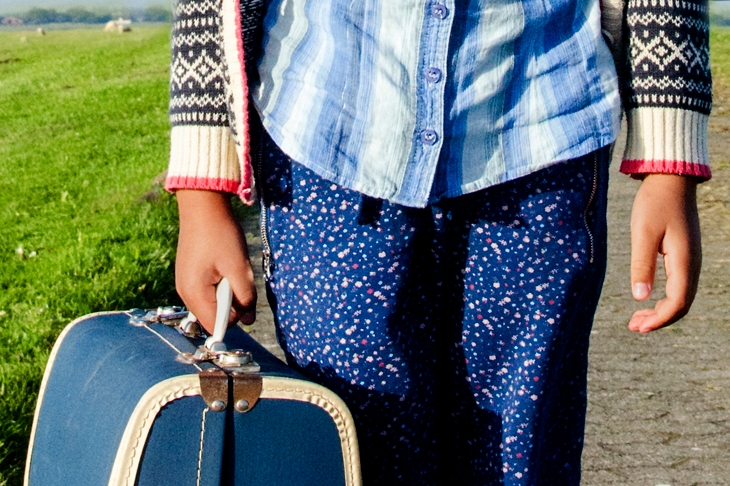Every nation has the right to control its borders, but we in the West are getting a bit too comfortable dehumanising other humans for failing to fill out forms in triplicate before fleeing the carpet-bombing of their cities. In recent months, Theresa May has rejected Calais’s child refugees; Donald Trump has seemingly tried (unsuccessfully, twice) to ban Muslims; and Australia has gone full ‘Dickensian judge’ and chucked its refugees on a prison island. So at a time when expressing the hope that refugee kids don’t starve to death in camps marks one out as a ‘luvvie snowflake’, it’s good to have a writer grab us by the lapels and shout: ‘Look, we all know mass global displacement is a bit complex, but we can’t just tell everyone running from war to fuck off. ‘
Mohsin Hamid does that (albeit more subtly) in his stunning novel, Exit West. In an unnamed but moderate Middle Eastern city, Saeed and Nadia fall in love. They are, Hamid shows, rather like us. Saeed’s beloved parents are quiet bohemians; Nadia smokes hash and rides a motorcycle. Together, she and Saeed listen to music and flicker through the world on social media. Aside from the occasional ‘flat cracks’ of gunfire, their city feels familiar. But while Saeed and Nadia’s love strengthens, the city crumbles and falls to fundamentalist insurgents, with public executions and fighter-bomber airstrikes dropping bombs that explode ‘with an awesome power that brought to mind the might of nature itself’. When Saeed’s mother is killed in her car by ‘a stray heavy-caliber round… taking with it a quarter of [her] head’, the family must flee or die.
F. Scott Fitzgerald’s life, legacy and lastings greatness – Listen and subscribe to the Spectator Books podcast, hosted by Sam Leith:
Saeed and Nadia have a solution: ‘Rumours had begun to circulate of doors that could take you elsewhere, often to places far away’ (think the Narnia wardrobe meets people-smuggling). This magical realist device is effective — a metaphor for the practical, if not administrative, speed of global movement, for our technological connectivity, and, perhaps, the ease with which compassion can save lives. We travel from the lovers’ shattered city to a refugee camp in Mykonos, where ‘spring was stuttering into… scattered flowers’, and then to camps in London and San Francisco.
Nadia and Saeed’s relationship forms the narrative arc of Exit West, and Hamid’s rendering of it — authentic, tender, but never sentimental — insistently humanises their struggle: for safety, for warmth and for a life beyond the tents. The hostility of ‘native’ Londoners is pitted against this. Hamid uses magical realism again to uncomfortably physicalise the cultural and legal borders we erect. Nadia and Saeed are contained within a fenced ghetto, patrolled by soldiers under a ‘drone-crossed sky’; they are beaten by mobs of government-encouraged vigilantes:
Nadia’s eye was bruised and would soon swell shut but Saeed’s lip was split and kept bleeding down his chin and onto his jacket, and in their terror they each gripped with all their might a hand of the other to avoid being separated.
Exit West never becomes didactic; rather, it seeks, insistently, for empathy — not just for refugees but for the ‘native’ inhabitants adjusting to a fast changing, often confronting, redrawing of the world. Hamid addresses the realities of global displacement with blunt pragmatism, exhorting the West to adapt, adjust, and privilege our common humanity above all else. This is conveyed via taut, sweet prose, in a novel of richly textured meaning that breathes down every line, ‘it could be you’. You might disagree with Exit West’s politics, but it is first-rate literature: a work of beauty that will make you think and make you feel. And what is great art, if not for that?






Comments